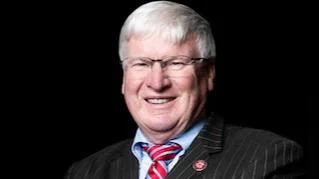U.S. Rep. Glenn Grothman Wisconsin’s 6th Congressional District | Official U.S. House headshot
U.S. Rep. Glenn Grothman Wisconsin’s 6th Congressional District | Official U.S. House headshot
Congressmen Glenn Grothman from Wisconsin and Don Beyer from Virginia have introduced bipartisan legislation aimed at ending taxpayer subsidies for professional sports stadiums. The No Tax Subsidies for Stadiums Act seeks to prevent taxpayer funds from being used for the construction of these stadiums by eliminating a provision that allows sports teams to use tax-exempt municipal bonds, a privilege initially meant for essential public infrastructure projects.
Senators James Lankford of Oklahoma and Cory Booker of New Jersey, who share the same goals, introduced the Senate version of the bill.
Grothman stated, “Congress is sometimes criticized for providing special tax breaks for wealthy individuals and when it comes to sports stadiums, it is true. We should no longer allow provisions that were intended to help local communities build infrastructure, like roads, be abused to help subsidize multi-billion dollar sports franchises and owners. Hardworking Americans should not be forced to finance billion-dollar sports stadiums.”
Beyer added, “American taxpayers should not be forced to fund the building of sports stadiums for super-rich sports team owners. Billionaire owners who need cash can borrow from the market like any other business. Arguments that stadiums boost job creation have been repeatedly discredited. In a time when there is a debate over whether the country can ‘afford’ investments in health care, childcare, education, or fighting climate change, it is ridiculous to even contemplate such a radical misuse of publicly subsidized bonds.”
Currently, professional sports teams can use tax-exempt municipal bonds for stadium construction, a measure originally intended for crucial public initiatives such as schools and hospitals. This loophole has allowed teams to capitalize on taxpayer dollars, reportedly costing American taxpayers $4.3 billion in lost federal revenue since 2000. The proposed legislation aims to redirect these funds towards essential services with tangible benefits to society.






 Alerts Sign-up
Alerts Sign-up